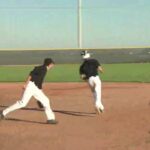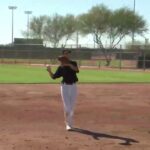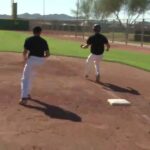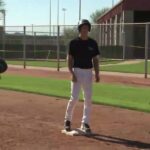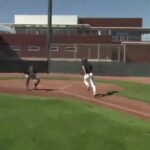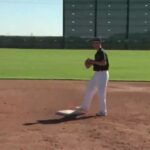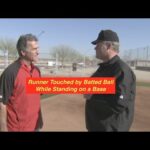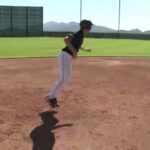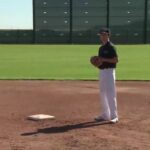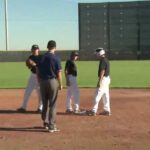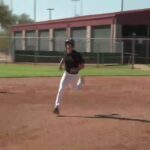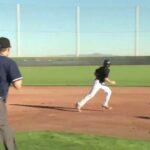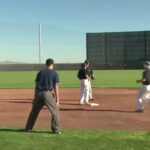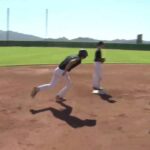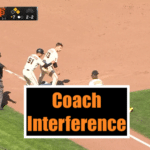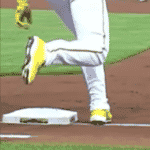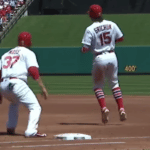Rule 8 – Section 2 – TOUCHING, OCCUPYING AND RETURNING TO A BASE
8-2-1 An advancing runner shall touch first, second, third and then home plate in order, including awarded bases.
8-2-2 A returning runner shall retouch the bases in reverse order. If the ball is dead because of an uncaught foul, it is not necessary for a returning runner to retouch intervening bases. The umpire will not make the ball live until the runner returns to the appropriate base.
8-2-3 Any runner who misses a base while advancing may not return to touch it after a following runner has scored.
NOTE: Any runner who misses the first base to which he is advancing and who is later called out shall be considered as having advanced one base.
8-2-4 If a fair or foul batted ball is caught, other than a foul tip, each base runner shall touch his base after the batted ball has touched a fielder. (See 8-4-1c for fielder intentionally dropping the ball and 8-4-2i for runner being put out.)
8-2-5 If a runner who misses any base (including home plate) or leaves a base too early, desires to return to touch the base, he must do so immediately. If the ball becomes dead and the runner is on or beyond a succeeding base, he cannot return to the missed base and, therefore, is subject to being declared out upon proper and successful appeal.
PENALTY (ART. 8-1-5): For failure to touch a base (advancing and returning), or failure to tag up as soon as the ball is touched on a caught fly ball, the runner may be called out if an appeal is made by the defensive team. The defense may appeal during a live ball immediately following the play and before a pitch (legal or illegal), granting an intentional base on balls, or before the next play or attempted play. If the offensive team initiates a play before the next pitch, the defensive team does not lose the right to appeal. A live-ball appeal may be made by a defensive player with the ball in his possession by tagging the runner or touching the base that was missed or left too early. A dead-ball appeal may be made by a coach or any defensive player with or without the ball by verbally stating that the runner missed the base or left the base too early. Appeals must be made (1) before the next legal or illegal pitch; (2) at the end of an inning, before the pitcher and all infielders have left fair territory; (3) before an intentional base on balls is granted; or (4) on the last play of the game, an appeal can be made until the umpires leave the field of play. NOTE: When a play by its very nature is imminent and is obvious to the offense, defense and umpire(s), no verbal appeal is necessary, e.g. runner attempting to retouch a base that was missed, or a failure to tag up and a throw has been made to that base or plate while a play is in progress.
8-2-6 Appeal procedures and guidelines
- Types:
- Missing a base
- Leaving a base on a caught fly ball before the ball is first touched.
- Live Ball. In all games an appeal may be made during a live ball by any fielder in possession of the ball touching the base missed or left too soon on a caught fly ball, or by tagging the runner committing the violation if he is still on the playing field.
- Dead Ball. The dead-ball appeal may be made: 1) Once all runners have completed their advancement and time has been called, a coach or any defensive player, with or without the ball, may make a verbal appeal on a runner missing a base or leaving a base too soon on a caught fly ball. The administering umpire should then make a decision on the play. 2) If the ball has gone out of play, runners must be given the opportunity to complete their base-running responsibilities before the dead-ball appeal can be made.
- May Not Return. A runner may not return to touch a missed base or one left too soon on a caught fly ball if:
- he has reached a base beyond the base missed or left too soon and the ball becomes dead,
- he has left the field of play, or
- a following runner has scored.
- Advance. Runners may advance during a live-ball appeal play. If a time out is requested for an appeal, the umpire should grant it, and runners may not advance until the ball becomes live again.
- More Than One Appeal. Multiple appeals are permitted as long as they do not become a travesty of the game.
- Awards. An appeal must be honored even if the base missed was before or after an award.
- Tag-Ups. If a runner leaves a base too soon on a caught fly ball and returns in an attempt to retag, this is considered a time play and not a force out. If the appeal is the third out, all runs scored by runners in advance of the appealed runner and scored ahead of the legal appeal would count.
- Fourth-Out Appeal. An appeal may be made after the third out as long as it is made properly and the resulting appeal is an apparent fourth out.
- End of Game. If any situation arises which could lead to an appeal by the defense on the last play of the game, the appeal must be made while an umpire is still on the field of play.
- Third-out Baserunning Infraction. If a baserunning infraction is the third out, runs scored by the following runner(s) would not count. With two outs, if the base missed was the first to which the batter or runner was forced to advance, no runs would score. When a runner is legally returning after a fly ball has been caught, he can be put out by being tagged with the ball by a defensive player or merely by the defensive player with the ball touching the base occupied by the runner at the time of the pitch.
- Last Time By. If a runner correctly touches a base that was missed (either in advancing or returning), the last time he was by the base, that last touch corrects any previous base running-infraction.
8-2-7 A batter-runner who reaches first base safely and then over-runs or over-slides may immediately return without liability of being put out provided he does not attempt or feint an advance to second.
8-2-8 A runner acquires the right to the proper unoccupied base if he touches it before he is out. He is then entitled to this base until he is put out, or until he legally touches the next base while it is unoccupied or until a following runner is forced (2-24-1) to advance to the base he has occupied. A runner need not vacate his base to permit a fielder to catch a fly ball in the infield, but he may not interfere.
a. If two runners are on the same base, at the same time and both are tagged, the following runner is declared out. On a force play situation, the runner who is forced to advance shall be declared out when tagged on the base or the base to which he is forced is touched by a fielder while in possession of the ball.
8-2-9 Each runner shall touch his base after the ball becomes dead. All awarded bases must be touched in their proper order. The runner returns to the base he had reached or passed when the ball became dead. In the event of interference, a runner returns to the base he had legally reached at the time of the interference. If the interference does not cause the batter to be out and any other runner cannot return to the base last legally occupied at the time of the interference, he is advanced to the next base.
a. The runner returns to the base occupied at the time of the pitch if his advance was during an uncaught foul.



